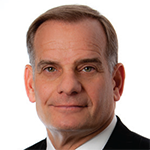The White House agreed with MedPAC and formally requested that Congress adjust Medicare payment polices to reflect a more site-neutral approach.
Explore This Issue
February 2016 Although the payment policy change will take effect on Jan. 1, 2017, grandfathered status will be determined as of Nov. 1, 2015. Therefore, physician practice acquisitions will not have grandfathered status unless outpatient billing began for that practice location prior to enactment.
Although the payment policy change will take effect on Jan. 1, 2017, grandfathered status will be determined as of Nov. 1, 2015. Therefore, physician practice acquisitions will not have grandfathered status unless outpatient billing began for that practice location prior to enactment.Key Changes and Grandfathered Status
Under the Act, the site-neutral payments will effectuate savings in excess of $9 billion. New off-campus hospital outpatient departments will be paid under other Medicare payment systems, such as the Medicare Physician Fee Schedule or the Ambulatory Surgical Center Fee Schedule, rather than receiving payment under OPPS. This new policy will apply to most hospital outpatient department items and services (other than hospital emergency department services) furnished on or after Jan. 1, 2017, unless either:
- The hospital outpatient department is located within the area that Medicare regulations define as the hospital’s campus (generally, the hospital’s main buildings and areas within 250 yards of the main buildings, as well as other areas designated by CMS as part of the campus) or within 250 yards of a remote location; or
- The hospital outpatient department was billed as an outpatient department prior to Nov. 2, 2015 (the date of enactment).
It’s important to note that although the payment policy change will take effect on Jan. 1, 2017, grandfathered status will be determined as of Nov. 1, 2015. Therefore, physician practice acquisitions (even if in the pipeline prior to enactment of this legislation) will not have grandfathered status unless outpatient billing began for that practice location prior to enactment. This distinction will likely guide hospitals and health systems as they consider expanding their organizations, because there may be opportunities to expand existing off-campus hospital outpatient departments and take advantage of the more favorable OPPS reimbursement rate, as opposed to building new off-campus hospital outpatient departments, which would be subject to the payment policy change.
Practical Effect
The Act will undoubtedly affect the development and expansion strategies of hospitals and health systems. It will likely cause hospitals in the process of acquiring or developing new hospital outpatient departments to restructure those developments or possibly consider moving them on campus.
The implications of this policy change will depend in part on how the Centers for Medicare and Medicaid Services (CMS) implements Section 603 through upcoming regulations and interpretation, as well as on how hospitals, physicians, and other healthcare providers respond to this changing environment. Hospitals and health systems that are considering creating new hospital outpatient departments or acquiring existing physician practices to furnish services in an outpatient setting should consider the likely impact of the new policies.